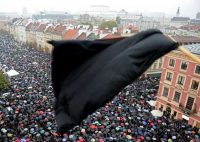Cómo Hungría convierte el Holocausto en simulacro
La exhibición en la Casa de la Excelencia Judía en Balatonfüred, un pequeño y pintoresco pueblo en la costa norte del lago Balaton en Hungría, presenta a unos 130 judíos que se destacaron en ciencia, tecnología, ingeniería y matemática, muchos de ellos de origen húngaro. Pero en la tienda del museo no hay nada que se refiera específicamente a los judíos en el contexto húngaro. A lo sumo se puede comprar una botella de vino kosher o una taza con la icónica foto de Albert Einstein sacando la lengua.
¿Es esto un problema? Quizá deberíamos celebrar la apertura de otro museo judío en Hungría, que tiene la segunda comunidad judía en Europa pero muy pocos sitios conmemorativos del Holocausto.… Seguir leyendo »



